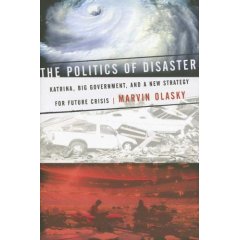It's been justly affirmed that following Jesus is more than just making sure that we and those around us go to heaven when we die. This seems obvious just by reading the four gospels and observing our Lord's behavior. Jesus was forever responding to the physical needs of those around Him, in addition to directing folks to throw off their addiction to the temporal.
It is, however, an imbalance to suggest that we should "get over" the fact that Jesus died for our sins - or for those of our neighbors. We are creatures; He is the Creator and we ever need Him.
Luke records in cp 10 of his history:
1After this the Lord appointed seventy-two others and sent them on ahead of him, two by two, into every town and place where he himself was about to go. 2And he said to them, "The harvest is plentiful, but the laborers are few. Therefore pray earnestly to the Lord of the harvest to send out laborers into his harvest."
Luke 10:1,2 (ESV)
Luke continues
17The seventy-two returned with joy, saying, "Lord, even the demons are subject to us in your name!" 18And he said to them, "I saw Satan fall like lightning from heaven. 19Behold, I have given you authority to tread on serpents and scorpions, and over all the power of the enemy, and nothing shall hurt you. 20Nevertheless, do not rejoice in this, that the spirits are subject to you, but rejoice that your names are written in heaven."
vss 17-20
In Luke 10, the 72 are excited about the effectiveness of their personal ministries. Jesus redirects the vision of his listeners away from the spiritual power that's around them and toward their own personal relationship with the God who built a home for them where He is.
In other words, it is God's love manifested through the Gospel that is to drive the 72 in all they do.
Paul speaks in similar fashion in his 2nd letter to the church at Corinth:
4For the love of the Christ constrains us, having judged this: that one died for all, then all have died;
15and he died for all, that they who live should no longer live to themselves, but to him who died for them and has been raised
2 Corinthians 5:14,15 (Darby Translation, emphasis mine)
We are never meant to mature beyond a fascination with the fact that God loves us and that we are saved.
To be thrilled with the Gospel and our salvation is not a sign of adolescent spirituality. The persistent, enduring joy of God's love for us manifested in the cross is rather a sign of our spiritual maturity.
This joy gives us the psychological and spiritual freedom to be concerned for
all of our neighbors' needs.
Since our Lord Himself enjoins us (also in Luke 10 as above) to love our neighbors as ourselves (vss. 27,28), we want our neighbors to have the same joy we have. And so we also wish for them to know the joy of having their names written in heaven. This creates no dichotomy between our concern for their physical well-being and our concern for their eternal destiny, for love defeats this false antithesis.
If we are hungry, we love ourselves with food. If our neighbors are hungry, we love them with food as we love ourselves.
When we come to the realization that we are lost, we love ourselves enough to receive God's free gift of Jesus Christ. When our neighbors are lost, we love them as we love ourselves and also wish for them to receive this free gift and escape judgment.
Is one more important than the other? Of course, it is.
It's better to die of starvation and have your name written in heaven. But yet we aren't so "spiritual" that we don't feed ourselves and - similarly - our hungry neighbor won't be terribly impressed with our love or interested in our gospel message if we don't give him a slice of bread.
We should never move beyond our fascination and gratitude for God's love for us. And our appreciation for that overwhelming love drives us towards others and whatever needs they have.
 Brendt suggests an alternative to "friends of emergent" or "friends of discernment." :)
Brendt suggests an alternative to "friends of emergent" or "friends of discernment." :)









